In the name of Allah, Most Gracious, Most Merciful. Peace be upon the final messenger.
إِنَّ فِي خَلْقِ السَّمَاوَاتِ وَالْأَرْضِ وَاخْتِلَافِ اللَّيْلِ وَالنَّهَارِ لَآيَاتٍ لِأُولِي الْأَلْبَابِ
الَّذِينَ يَذْكُرُونَ اللَّهَ قِيَامًا وَقُعُودًا وَعَلَىٰ جُنُوبِهِمْ وَيَتَفَكَّرُونَ فِي خَلْقِ السَّمَاوَاتِ وَالْأَرْضِ رَبَّنَا مَا خَلَقْتَ هَٰذَا بَاطِلًا سُبْحَانَكَ فَقِنَا عَذَابَ النَّارِ
In the creation of the heavens and the earth, and in the alternation of night and day, are signs for people of understanding. Those who remember God while standing, and sitting, and on their sides; and they reflect upon the creation of the heavens and the earth: “Our Lord, You did not create this in vain, glory to You, so protect us from the punishment of the Fire.” (Quran 3:190-191)
There are many lessons we can learn from these beautiful and powerful verses, but today I just want to focus on one important quality that Allah lists in these verses as a quality of the intelligent and righteous, and that is the quality of Tafakur (Contemplation). In this passage, Allah informs us that intelligent people study the universe, and reflect on the world around them, and that contemplation leads them to conclude that everything has a purpose and that we must live purposeful lives. Note that Allah links finding one’s way to the straight path directly to intellect and contemplation.
But what is contemplation and what is its role in the life of a Muslim? This will be our theme of discussion for today.
We live in a time in which people are too busy and distracted. Through being constantly online, always connected to the internet, and surrounded by entertaining gadgets, we rarely find time to be alone with our thoughts. Because we do not spend enough time alone with our thoughts, we rarely make time to reflect deeply, develop deeper ways of thinking, and arrive at important life changing conclusions. In a constantly connected world, the art of contemplation has become lost. Simply put, we do not think enough.
Virtues of Contemplation
Carving out time for contemplation solves this. Contemplation simply means to make time for deep thinking without any distractions or interruptions. We see this in the Seerah. The Prophet (pbuh) received the first revelation in the Cave of Hira, but what was he doing in a cave outside the city? He would regularly go to this cave to contemplate the purpose of life and the state of his community and think about solutions and a way forward. This makes it Sunnah to spend time alone deep in thought trying to resolve deeper problems.
Allah praises contemplation and its many types throughout the Quran, including the passage quoted above and the following verses:
In Surah Zumar, Allah describes the process of taking the soul in our sleep and at the time of death, and concludes the verse with:
اللَّهُ يَتَوَفَّى الْأَنْفُسَ حِينَ مَوْتِهَا وَالَّتِي لَمْ تَمُتْ فِي مَنَامِهَا ۖ فَيُمْسِكُ الَّتِي قَضَىٰ عَلَيْهَا الْمَوْتَ وَيُرْسِلُ الْأُخْرَىٰ إِلَىٰ أَجَلٍ مُسَمًّى ۚ إِنَّ فِي ذَٰلِكَ لَآيَاتٍ لِقَوْمٍ يَتَفَكَّرُونَ
God takes the souls at the time of their death, and those that have not died during their sleep. He retains those for which He has decreed death, and He releases the others until a predetermined time. In that are signs for people who reflect. (Surah Zumar 39:42)
وَمِنْ آيَاتِهِ أَنْ خَلَقَ لَكُمْ مِنْ أَنْفُسِكُمْ أَزْوَاجًا لِتَسْكُنُوا إِلَيْهَا وَجَعَلَ بَيْنَكُمْ مَوَدَّةً وَرَحْمَةً ۚ إِنَّ فِي ذَٰلِكَ لَآيَاتٍ لِقَوْمٍ يَتَفَكَّرُونَ
And of His signs is that He created for you mates from among yourselves, so that you may find tranquility in them; and He planted love and compassion between you. In this are signs for people who reflect. (Surah Rum 30:21)
كِتَابٌ أَنْزَلْنَاهُ إِلَيْكَ مُبَارَكٌ لِيَدَّبَّرُوا آيَاتِهِ وَلِيَتَذَكَّرَ أُولُو الْأَلْبَابِ
A blessed Book that We sent down to you, that they may ponder its Verses, and for those with intelligence to take heed. (Surah Saad 38:29)
Note the common themes between these verses. Contemplation is constantly linked in the Quran to intelligence and recognizing the signs of Allah. Even when talking about travel, Allah calls on us to reflect on the world we see as we travel through it.
قُلْ سِيرُوا فِي الْأَرْضِ فَانْظُرُوا كَيْفَ بَدَأَ الْخَلْقَ ۚ ثُمَّ اللَّهُ يُنْشِئُ النَّشْأَةَ الْآخِرَةَ ۚ إِنَّ اللَّهَ عَلَىٰ كُلِّ شَيْءٍ قَدِيرٌ
Say, “Roam the earth, and observe how He originated the creation.” Then God will bring about the next existence. God has power over all things.” (Surah al-Ankabut 29:20)
There is no doubt that contemplation is an important part of Islam and something we need to revive. Very briefly then, I want to share three things with you today: the benefits of contemplation, the types of contemplation, and some tips on how to do it effectively.
Benefits of contemplation
- Unlock deeper understandings of things. This can include a deeper understanding of the Quran, Hadith, History, and Fiqh, but also a deeper understanding of yourself, your goals, your plans, and your relationships.
- Confronting the darkness within and working through it. Too many of us neglect this side of us, as a result, it lurks in the darkness, grows, and eventually comes out at the most unexpected moments. It is very important to confront the darker side of our souls and deal with it directly.
- Understanding ourselves better. How well do you actually know yourself. Have you taken time to go inside and face yourself and deal with it. Do you understand your strengths, your weaknesses, your triggers, your darkness, and your potential. Contemplation helps you to dig deeper and understand your soul on a deeper level.
- Learning life lessons – Life lessons are crucial for helping us evolve into better versions of ourselves. We cannot do this, however, unless we take time to think deeply about our mistakes and to grow through the experience.
- Making better decisions – Especially when it comes to important life decisions, it is important to think deeper and to take time to truly reflect on the pros and cons of each decision. Regular contemplation helps you make better decisions in every aspect of your lives.
- Tapping into our spiritual side – We all have a spiritual side that needs nourishment. The deeper we engage with it, the more we benefit from it. A lot of contemplation unlocks a deeper relationship with the Quran, a closer connection with our own spiritual side, and stronger intuition to make better decisions
Types of contemplation
- Tafakur (contemplation) – to take any topic and think deeply about it. It could be an incident from your life, your plans for the future, or even a historical incident or hadith. Taking time to think deeply about anything helps you understand it deeper and derive more benefits from it.
- Tadabbur – reflecting on the Quran. This is more specific and refers to taking time to think deeply about a verse of the Quran reflecting on its meanings and its application to our own lives
- Muhasabah – Self-accountability – take time to reflect on your own weaknesses, sins, and faults, so you can repent and formulate plans to improve and grow into a better version of yourself.
- Muraqabah – self-reflection or mindfulness – to reflect on your inner state and your relationship with Allah. Muraqabah is linked to zikr and the deep thoughts that we gain while engaged in zikr are examples of muraqabah.
Tips for contemplation
- Disconnect. Shut down your connection to the internet and spend quality time offline, away from all connections.
- Carve out alone time. Choose a time of the day when you can be alone and focus without disturbances.
- Get rid of all distractions. Ensure there is nothing in the room that can disturb or distract you from your contemplation.
- Choose method and goal. Decide whether this time is dedicated to tafakur, tadabbur, muhasabah or muraqaba, figure out the goal, and focus on that specifically. For example, if you messed up and fell into sin, make time to do muhasabah and muraqabah on that sin and what led to it. If you recited a verse of the Quran that you want to understand better, make time to reflect on that specific verse of the Quran. If you have a big decision ahead, make time to reflect on that decision to ensure you consider all options and make the best decision possible.
- Find ways to focus and concentrate. Choose a method to help you concentrate, here are a few that work and are acceptable: take a walk in nature, sit alone in the masjid or a quite room with your eyes closed, and sit with a pen and book and write out your thoughts.
Learn more principles of success with our latest online course Ethical Living, available here: https://courses.islamicselfhelp.com/p/ethical-living
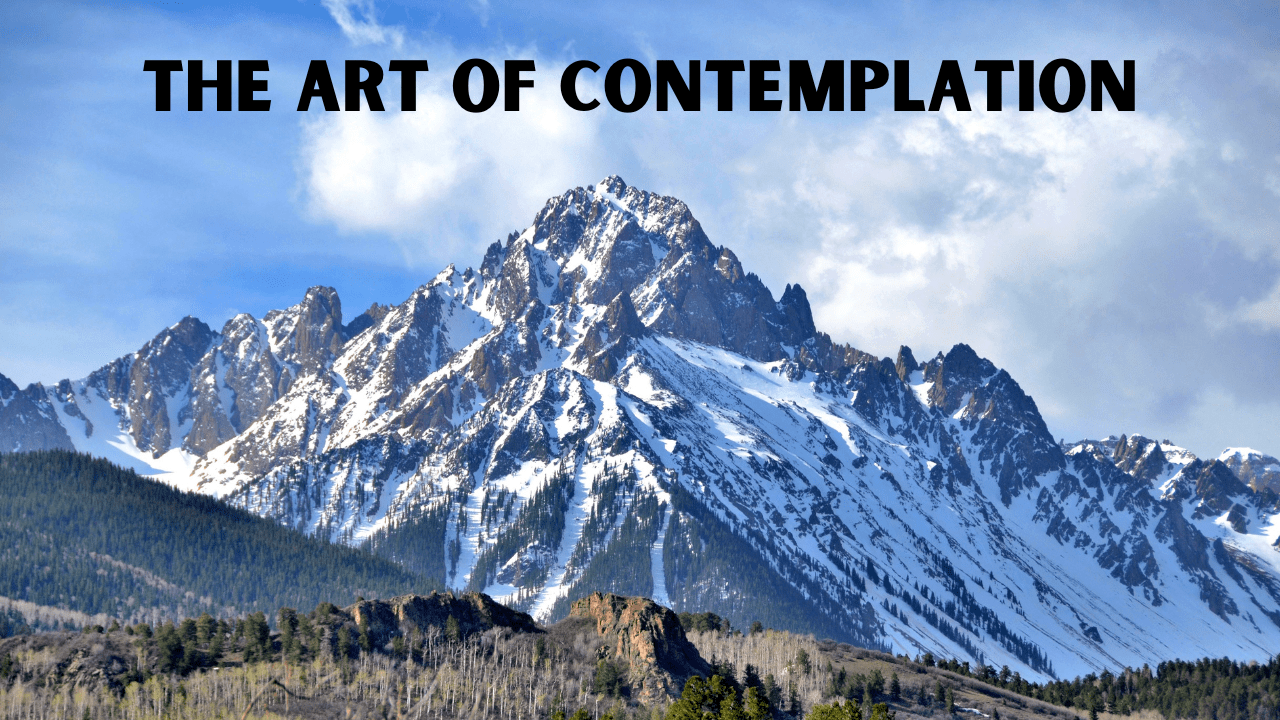

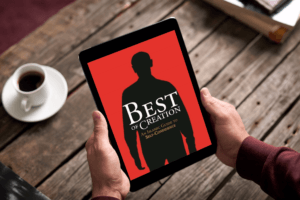
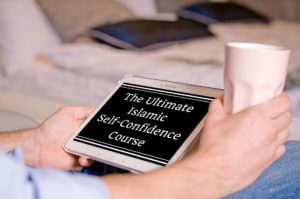
 Dealing with Setbacks: A Different Perspective
Dealing with Setbacks: A Different Perspective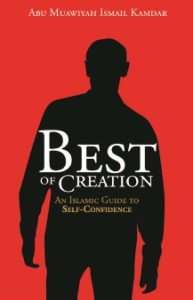
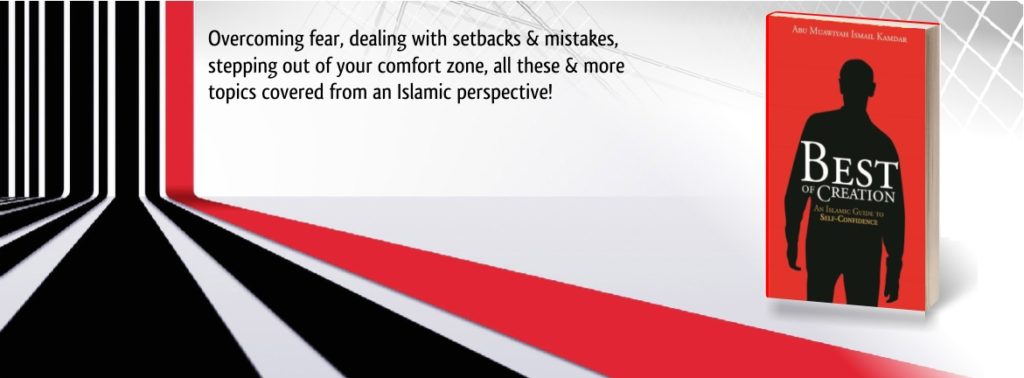
 3 Self Confidence tips you can apply today!
3 Self Confidence tips you can apply today!
